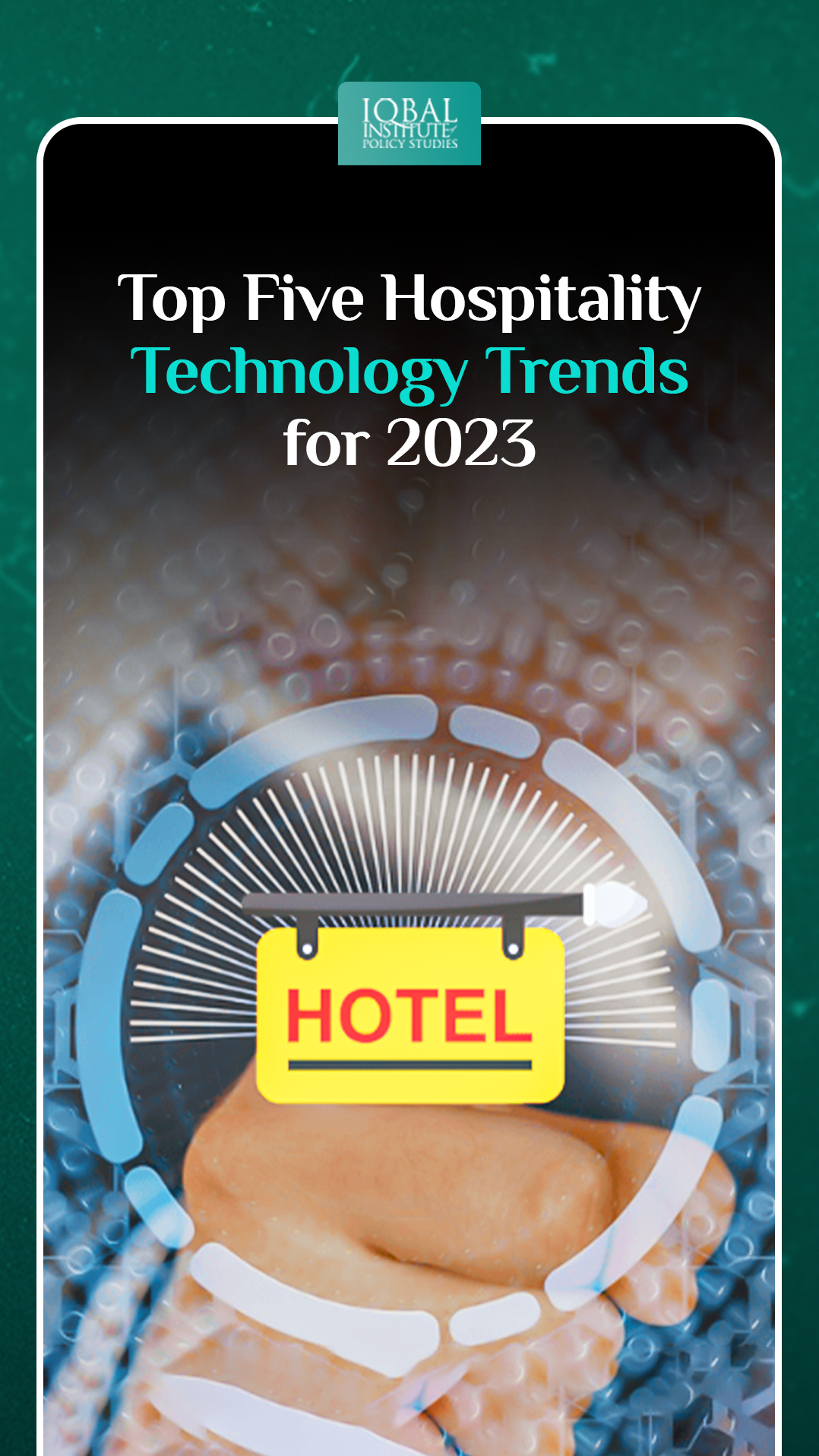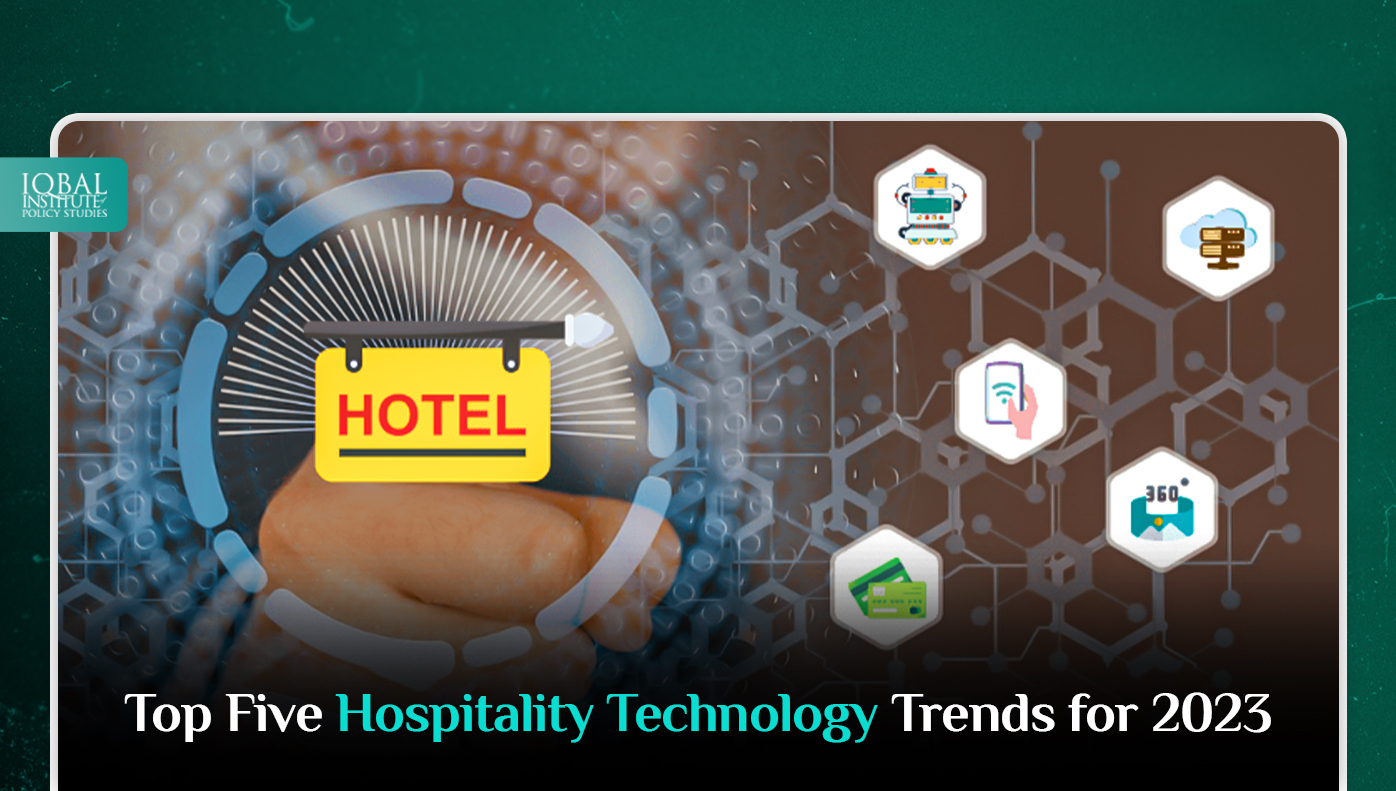Hospitality technology is the wide range of IT, e-commerce and similar solutions. It is important to incorporate technology into the hospitality sector that helps to streamline their process, reduce cost, lower staff workload, increase revenue generation and improve customer experience. Companies must hastily switch towards IT induce technologies and services to provide better customer service.
As per Hotelier Technology Sentiment Report 2022. 81.7% of hoteliers surveyed implemented at least one new technology in 2021. Merging new technology into day-to-day operations is important to control human error and service efficiency and improve the guest experience. The top five technologies that will reshape the hospitality sector are Artificial Intelligence (AI), Machine Learning (ML), Internet of Things (IoT), mobile technologies, Cloud-based technologies and Intelligent Automation.
1. Artificial Intelligent (AI) and Machine Learning (ML)
AI and ML are the two most exciting technologies in the hospitality sector. These technologies allow the owner to automate various ranges, from ordering to inventory management. Personalising the experience is one of the most powerful experiences provided by AI and ML. The hotelier can analyse the data and create a personalised experience for each guest, from reconciling recommendations for drinks and food to customised room settings. For instance, the hotel management can take data from the customer’s last visit and adjust lighting, room temperature, etc., as per their preference.
These technologies can automate tasks, i.e., ordering and inventory management. For instance, chatbots which conversational AI powers have an attribute to take orders and give answers to questions. This will reduce time, improve efficiency, and provide the best hotel experience to the guests.
However, ML algorithms can perform analyses of sales data, customer behaviour and inventory levels to anticipate future demand and optimise pricing, inventory and staffing. This can reduce the waste of resources and time and amplify revenue. Another important feature of AI is to create virtual personal assistants for guests.
2. Leveraging IoT for Smart Hotels and Restaurants
The internet of things is part of smart tourism because it provides virtual data to improve the tourist experience. It has the salient feature of connecting appliances and devices to the internet, creating a more convenient and efficient industry for guests. Smart room automation is the most exciting application of IoT. Customers can control these facilities using smartphones or tablets when all the devices are connected to the internet, such as lighting, thermostat and curtain. This can provide a more comfortable and convenient guest experience and improve the hotel’s energy efficiency.
Not only for customers, but IoT is also helping hotel management staff to work efficiently by connecting appliances such as dishwashers, refrigerators, and ovens to the internet. It supports them in automatically tracking inventory, monitoring usage and ordering new supplies.
3. Mobile technologies for Payment Systems and Enhancing Customer Engagement with Loyalty Programs
The next big trend will be adopting mobile technologies for efficient and easy ordering and payment transfer systems and intensifying customer engagement through loyalty programs and personalised offers. Hotels and restaurants are using the mobile app to improve their services. These apps can provide information about the hotel or restaurant, including menus, special offers, and reservations. Additionally, these apps allow guests to order food and drinks, pay bills, and track loyalty points and rewards.
Mobile technologies can be used in the hospitality industry to send SMS notifications about new and existing offers. For instance, hotel staff might notify the tourist or guests who previously stayed in their hotel and offer a special rate for forthcoming trips. This will uplift customer engagement. These notifications and SMS can be pushed to remind customers about their reservations or information related to their visits, such as confirmation numbers or check-in information.
The hotel and lodging industry uses this information to read customers’ behaviour and preference through loyalty programs and personalised offers. This will increase customer satisfaction and trust.
4. Cloud-Based Technologies: Efficiency and Scalability
To store and manage a large amount of data, cloud-based technologies are becoming an important part of the hotel and restaurant industry. It is an easy and cost-effective way to save data. One of the main features of cloud-based technology is that they enable real-time analytics and reporting, which support business in making the accurate decision. These new technologies will help access customer behaviour, trends and preferences to dilate business operations and expand revenues.
Cloud-based technology is useful for enabling flexibility and scalability. For instance, these technologies can be used to store and manage customer data, which can update employees and access any location. This can help to improve customer service and increase efficiency. Additionally, cloud-based technologies can also be used to automate tasks such as inventory management, which can save businesses time and money.
Another important benefit of cloud-based technologies is that it ensures security and data protection. This stores data in a secure, off-site location, protecting against data infringement and other security threats. Vendors operate this system, and they make sure that it is always up-to-date and secure.
It provides various benefits, such as increased revenue, operations, and customer experience. Additionally, cloud-based technology allows hotels to stay competitive by using data storage, inventory management and real-time management features.
5. The Power of Intelligent Automation
The intelligent Automation tool improves efficiency and reduces business operations costs. The hotel owners can use Automation in repeated tasks, i.e., kitchen logistics, inventory management and even customer services; staff can use their time more on different activities, such as creating a personalised customer experience. Moreover, it reduces the rate of human error, which will increase productivity and customer satisfaction.
It improves customer experience by automating customer services tasks, reducing query response time etc. Nonetheless, data analysis results can increase the business by providing special offers, which can help increase customer engagement and repetition.
Intelligent Automation is honing the operation of back-of-house. For example, Automation used in inventory management can help the staff verify the right product, help in reducing waste and improve efficiency. Furthermore, by automating kitchen logistics, businesses can ensure that orders are prepared and delivered promptly, which can help improve customer satisfaction.
Conclusion
Technology plays a significant role in shaping the future of hospitality and food services. These top five technologies will be game changers for the hospitality industry, i.e., AI and ML automate the task and personalise the customer experience, IoT creates smart hotels and restaurants, mobile technologies for convenient and efficient ordering and payment systems, cloud technologies will ensure management, data storage and scalability, and intelligent automation for tasks such as food delivery and food preparation along with improving back-of-house operation such as inventory management. These technologies increased efficiency, improved decision-making processes and customer satisfaction.



Leave a Reply